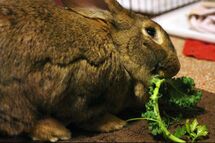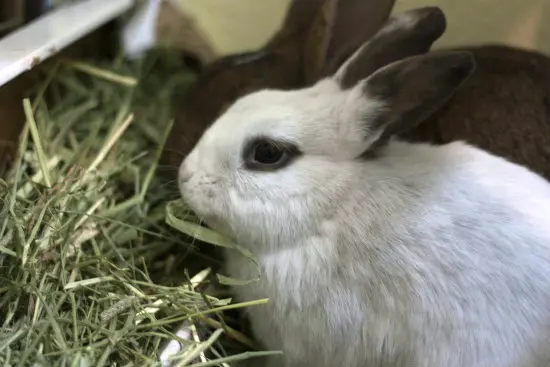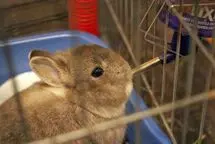Bunny Rabbit Care and Environment
After reading about the pleasures of owning a bunny rabbit, let's move on to the more pragmatic aspects of caring for your pet, including how to keep her secure, comfortable, and healthy. Since rabbits are delicate creatures, it's critical to comprehend their basic requirements.
1. Housing and Space
Your rabbit requires a clean and safe space. Because it is protected from the elements and potential predators, an indoor enclosure is the best option. Your rabbit should be able to jump around, stand up straight, and stretch in the room. It's a good idea to start with a cage that is at least four times the size of your rabbit.
Make sure the floor is soft; wire bottoms might cause foot pain for your rabbit. A lot of owners use straw, fleece, or plastic mats. Maintain a dry and draft-free living area at all times.
A peaceful place to hide and relax is ideal for rabbits. They feel safe and comfortable inside the pen thanks to a cardboard box or tiny wooden shelter.
2. Litter Training
Rabbits may be litter trained and are inherently clean creatures. Never use clumping cat litter since it can be harmful if ingested. Instead, use a low-sided plastic box filled with wood-pellet or paper-based litter. Since rabbits frequently nibble while urinating, place some hay inside the litter box.
3. Food and Nutrition
To maintain a healthy digestive system and appropriately worn teeth, a rabbit's food needs to be balanced. The primary elements are:
2.Fresh vegetables:
Give small portions daily — for example, romaine lettuce, parsley, cilantro, or dandelion greens. Avoid iceberg lettuce and high-sugar vegetables like carrots too often.
4.Fresh water:
Always available and changed every day.
Avoid giving your rabbit bread, cookies, or processed human food.
1.Hay:
The foundation of every rabbit’s diet. It should always be available. Timothy hay or orchard grass are excellent choices.
3.Pellets:
Choose high-fiber rabbit pellets, but offer them in limited amounts.
4. Grooming and Health Check
Throughout the year, rabbits shed many times. Regular brushing helps prevent intestinal obstructions by preventing fur from being eaten during grooming.
Once a month, examine your bunny's nails and cut them carefully if they become too long. Regularly check your teeth, ears, and eyes. Discharge or overgrown teeth may be signs of health issues.
At least once a year, a rabbit should have a general examination from a veterinarian who specializes in small animals.
5.Exercise and Enrichment
For their health, rabbits require daily exercise. Give your rabbit at least two to three hours a day to explore a secure, bunny-proofed environment.
Offer chewable hay, cardboard, or untreated wood toys. Climbing boxes, paper sacks, and tunnels are excellent places to stimulate the mind. Because it keeps them content and active, rabbits enjoy reorganizing and exploring their surroundings.
6.Companionship and Behavior
Rabbits are social animals. They enjoy being around their human family or another rabbit companion. If you decide to have two rabbits, make sure they are spayed or neutered to prevent fights and unwanted litters.
Understanding body language helps strengthen your bond. For example:
1
Ears forward = curious or alert
2
Teeth grinding softly = happy
3
Thumping hind legs = warning or fear
Spend quiet time with your rabbit every day. Speak softly and move slowly — trust takes time but lasts for life.
When you give a rabbit love, patience, and the proper conditions, caring for them may be a fulfilling experience. Your home may become a secure and happy setting for your rabbit to flourish with a few doable actions and regular care.



